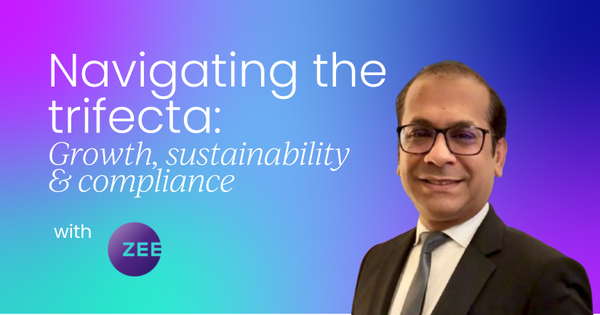In finance, it’s easy to get caught up in numbers alone, but what really drives sustainable growth is the discipline behind how we make decisions and the way we adapt to change.
Over the past few years, our business has expanded rapidly across Europe, adding channels, scaling streaming platforms, and building new partnerships, yet every move we’ve made has been anchored by a simple principle: if it isn’t profitable in year one, we don’t do it.
That mindset has shaped how we negotiate, how we innovate, and how we use technology. Automation has already transformed the way we operate, freeing people from manual processes so they can focus on analysis and strategy. And now, with artificial intelligence racing ahead faster than regulation can keep up, finance has an even bigger role to play, not just in approving the numbers behind an idea, but in ensuring the business understands the risks, the ethics, and the opportunities of what comes next.
In this article, I want to share the lessons we’ve learned on balancing growth with financial discipline, how automation and AI are reshaping the finance function, and why upskilling our people is the key to staying relevant in an unpredictable world.
Growth in Europe: A finance-driven approach
Our European business has been almost three decades in the making. What started in 1995 with a single TV channel in the UK has grown into a portfolio of seven channels reaching diverse audiences - from the South Asian diaspora to German, English, and Nordic viewers. Alongside this, we’ve built our own streaming platform, ensuring we’re present across every distribution model: free-to-air, paid channels, and apps.
By the mid-2000s, we had already reached all Asian households in our footprint. Expansion from there meant rethinking our approach. The key was localization - dubbing and subtitling our content into local languages so we could reach wider mainstream audiences. That decision has been pivotal in establishing us as the largest South Asian broadcaster and content aggregator in Europe, now reaching 40–45 million households.
From a financial perspective, our strategy has been simple but firm: no project moves forward unless it shows profitability in year one. In an industry saturated with content (Netflix, Amazon Prime, and countless others) that discipline is essential. Our programming and marketing teams must demonstrate clear returns before any launch. That rigor has driven nearly 80% top-line growth in just the last three to four years.
Equally important has been the way we manage partnerships. With platforms like Samsung, LG, Sky, Virgin, and Vodafone, our approach has always been transparent and grounded in fair margins. If our cost is $100, we ask for $122 (not $300) because the target is a 22% gross margin. That honesty has consistently secured favorable deals and strengthened long-term relationships. It’s a reminder that finance isn’t just about numbers on a spreadsheet; it’s about building trust that creates value for both sides.
The impact of Artificial Intelligence
The last three years have seen an explosion of artificial intelligence products from the world’s largest tech companies like Google, Meta, Microsoft, and others. Some have worked, many have not, but the sheer speed of development is overwhelming. ChatGPT was released in late 2022, and by 2024, the pace of change is still faster than most of us can realistically absorb.
From my perspective, that speed is both exciting and unsettling. The challenge isn’t whether AI will reshape our industries because it already is, but whether humans and businesses can adapt quickly enough to keep up. That uncertainty is what makes it feel, at times, a little scary.
Rather than waiting for clarity, we’ve focused on applying AI tools where they can create real impact in media and entertainment. With 150 TV channels worldwide, a streaming platform in 190 countries, and hundreds of millions of active users, the opportunities are vast. But so are the responsibilities.
Operating in regulated markets like the UK and Europe means we must ensure compliance, whether it’s avoiding inappropriate advertising before 9 p.m. or managing content standards. AI and automation play an important role in helping us meet those obligations.

Automation in broadcasting
In fact, our automation journey started long before AI became a buzzword. Between 2011 and 2014, we rebuilt our systems so that compliance checks and back-office processes could run seamlessly without manual intervention. Today, from the moment a sales contract is signed to the point an invoice is issued, everything is automated.
I often say that AI is just automation with a new name. You tell the system what to do, and it does it. What matters is the value it creates. For us, automation has reduced errors, accelerated turnaround times, and freed finance teams to focus on analysis instead of administration.
Crucially, there were no job losses. Instead, our people upgraded and upskilled themselves to work with the new systems. That shift has been one of our biggest successes, not only in making operations more efficient but in proving that technology and people can grow together.



 Follow us on LinkedIn
Follow us on LinkedIn




